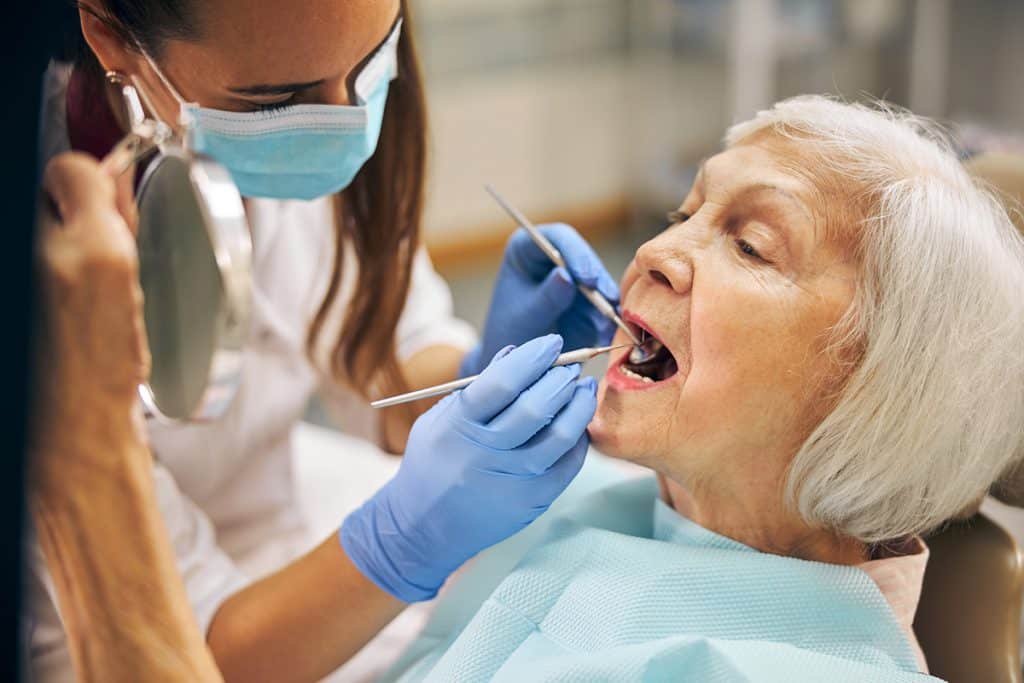Can Smokers Get Dental Implants? What You Need to Know

When you’re missing teeth, dental implants can be life-changing. They look, feel, and function like real teeth—and they help preserve your jawbone and facial structure. But if you smoke, you may have heard that implants might not be an option. The truth is more nuanced.
At Davis Gribble Hollowwa Dental, we’ve helped many smokers successfully restore their smiles with dental implants. While smoking does present risks, it doesn’t always disqualify you. What matters most is preparation, honest conversations, and careful planning. In this blog, we’ll explain how smoking impacts implant success and what steps you can take to move forward safely and confidently.
How Smoking Affects Healing and Implant Success
Dental implants rely on a process called osseointegration, where the titanium post fuses with your jawbone. This connection must be strong and stable for the implant to function like a natural tooth. Unfortunately, smoking interferes with nearly every part of the healing process.
Nicotine reduces blood flow and oxygen levels in your tissues, which slows healing and increases your risk of infection. Smoking also impairs your immune response, making it harder for your body to fight off bacteria around the implant site. This combination can lead to a higher rate of early implant failure or long-term complications like peri-implantitis (a gum infection similar to periodontitis).
That said, not all smokers will experience problems—and some have excellent outcomes with the right care. We take each case individually and work with you to understand your risks and options.
What We Recommend Before and After Implant Surgery
If you smoke and are considering dental implants, we strongly encourage you to quit—or at least pause—during the healing period. Research shows that stopping smoking before and after implant surgery significantly improves your chances of long-term success.
Ideally, you should quit smoking at least one week before your surgery and avoid all tobacco products for at least two months afterward. This gives your body the best chance to heal and form a solid bond between the implant and your bone.
We know quitting isn’t easy. That’s why we partner with our patients to provide support, resources, and strategies. If you’re not ready to quit completely, even cutting back during the healing phase can make a difference. Our goal is to help you succeed, not shame you.
Alternatives and Additional Precautions for Smokers
In some cases, we may recommend alternative treatment options or additional precautions to protect your health and investment. For example, patients with bone loss due to smoking or gum disease may need a bone graft before receiving implants. Others may benefit from mini implants or shorter implant posts that reduce pressure on the bone.
During your consultation, we’ll take a close look at your oral health, review your smoking history, and use advanced imaging to evaluate your bone density. From there, we’ll create a customized treatment plan with realistic expectations and built-in safeguards.
We’ll also walk you through proper hygiene, follow-up visits, and signs of complications to watch for. Smokers must be especially diligent with at-home care and professional cleanings. Even after successful healing, long-term maintenance is key to avoiding implant failure.
Restoring Your Smile Is Still Possible
We’ve seen firsthand that smokers can benefit from dental implants with the right approach. While smoking does increase the risk of complications, it’s not an automatic disqualification. What matters most is honest communication, personalized planning, and a willingness to make some short-term changes for long-term rewards.
If you’re a smoker and missing one or more teeth, don’t assume you’re out of options. At Davis Gribble Hollowwa Dental, we’re here to help you understand your choices, reduce risks, and achieve a healthy, functional smile that lasts. Whether you’re ready now or just exploring possibilities, we’d be honored to support your next steps.
Frequently Asked Questions About Dental Implants
Can I still get dental implants if I smoke?
Yes, many smokers are candidates for dental implants, but the risk of complications is higher. Smoking affects healing and increases the likelihood of infection or implant failure. That’s why we encourage patients to quit or at least stop smoking during the healing phase. A consultation helps us evaluate your health and develop the safest plan possible.
What happens if I continue smoking after getting implants?
Continuing to smoke after dental implant placement raises the risk of long-term issues like gum disease, bone loss, or peri-implantitis. These problems can cause the implant to fail or become loose over time. Regular checkups and consistent oral hygiene are even more important for smokers to maintain their implants.
At Davis Gribble Hollowwa Dental, we help Albuquerque residents restore their smiles and oral health through advanced, personalized dental care. We welcome smokers, non-smokers, and anyone ready to explore options for tooth replacement. Contact us to schedule your implant consultation today.

